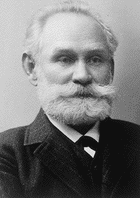Tuesday, 24 June 2008
Improving Access to Psychological Therapies (IAPT) Toolkit
Monday, 23 June 2008
Valuing People Newsletter - Self Directed Support and Families
The latest newsletter is about some of the important things families of people with a learning disability need to know to have more choice and control in their lives.

The focus is on families and ‘self directed support’, or what has been more
recently called Personalisation.
The aim of the newsletter is to try and give families some information about
personalisation and the different ways that it can help people have more
choice and control in their lives. This is done through stories from
families who are already ‘doing’ self directed support.
The Valuing People Support Team asked the families a number of questions
• What made you try self directed support?
• How has it changed your family’s life?
• Have you had to overcome challenges along the way and how?
• Do you have any top tips for other families?
Follow the link below to download the report and find out what the families had to say:
Click here to read the newsletter
BANNED WORDS
The LGA's top 100 'banned words'
- ambassador
- agencies
- beacon
- best practice
- bottom-up
- CAAs
- can do culture
- capacity
- capacity building
- cascading
- cautiously welcome
- champion
- citizen empowerment
- community engagement
- conditionality
- consensual
- contestability
- core message
- core value
- coterminosity
- coterminous
- cross-cutting
- customer
- democratic mandate/legitimacy
- distorts spending priorities
- early win
- empowerment
- engagement
- engaging users
- enhance
- evidence base
- external challenge
- facilitate
- fast-track
- flexibilities and freedoms
- framework
- fulcrum
- good practice
- governance
- guidelines
- holistic
- holistic governance
- improvement levers
- incentivising
- income/funding streams
- initiative
- joined up
- joint working
- LAAs
- level playing field
- localities
- meaningful consultation/dialogue
- MAAs
- menu of options
- multi-agency
- multidisciplinary
- outcomes
- output
- participatory
- partnerships
- pathfinder
- peer challenge
- performance network
- place shaping
- predictors of beaconicity
- preventative services
- priority
- process driven
- quick hit
- quick win
- resource allocation
- revenue streams
- risk based
- scaled-back
- scoping
- seedbed
- service users
- shared priority
- signpost
- single point of contact
- slippage
- social contracts
- stakeholder
- step change
- strategic/overarching
- streamlined
- subsidiary
- sustainable
- sustainable communities
- symposium
- synergies
- tested for soundness
- third sector
- top-down
- transformational
- transparency
- value-added
- vision
- visionary
- welcome







.png)










